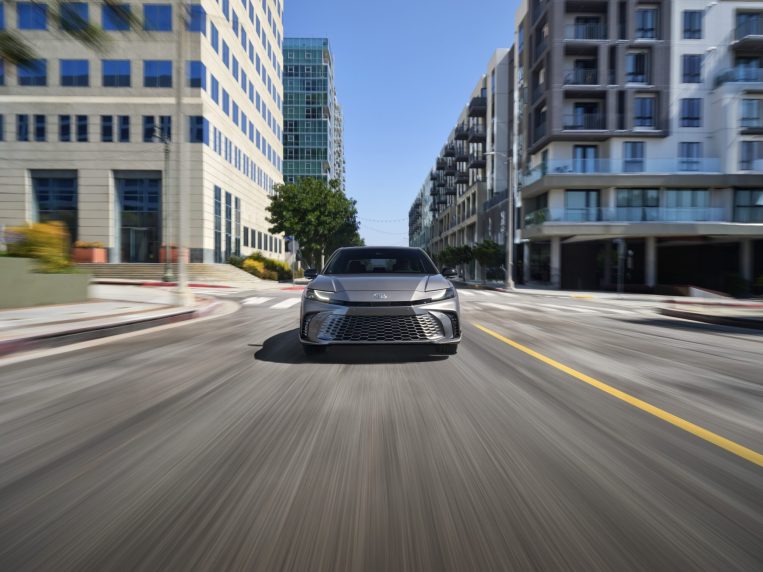
SUVs and pickup trucks may get the most significant share of attention among vehicle types, but Toyota’s November 14 statement about the automaker’s signature 4-door sedan struck a chord. Toyota’s announcement that the 2025 Camry lineup will powered solely by hybrid engines was the car world equivalent of a power chord with open G tuning. Strong, clear, and unmistakable.
This announcement is monumental for Toyota. In January 2023, Toyota President and CEO Akio Toyoda stepped down. Toyoda had resisted going all in on battery-electric vehicles (BEVs), although under his reins, the company introduced two generations of the Mirai, a hydrogen fuel cell-powered car. Also, the Toyota Prius, which has been for sale in the U.S. since 2000, proved there was a market for automobiles powered by alternative fuel.
Koji Sata became Toyota’s new CEO and President in 2023. Previously, he led Toyota’s Lexus and Gazoo rally racing divisions. Earlier in 2023, Sata said Toyota would intensify the development of battery electric vehicles (BEVs) while still working on hybrids and fuel cells. But later, in 2023, Sata seemed less enthusiastic about BEVs and again emphasized Toyota’s multi-pathway approach to electrification, including hybrid cars and fuel cells in addition to BEVs.

Toyota’s commitment to improving the Camry
Toyota’s announcement that the 2025 Camry will be an all-hybrid model is significant because the Camry represents the core of Toyota’s U.S. business. Four-door sedans aren’t popular now and haven’t been for a while. The smaller Toyota Corolla currently outsells the Camry worldwide. However, the Camry’s reputation for reliability and durability has been a significant asset in Toyota’s ascent to the top ranks of automotive manufacturers worldwide.

Starting with the 2025 Camry, all trim levels will be available with either FWD or AWD. The car will be more powerful, with a combined 225 horsepower in the FWD models and 232 HP in the AWD models. The all-wheel-drive version has 30 hp more than the current AWD Camry. Toyota also improved the suspension and braking for better handling and more agility.

The best of the 2025 Toyota Camry
All 2025 Camrys will have a Blind Spot Monitor, Rear Cross-Traffic Alert standard, and Toyota Safety Sense 3.0 (TSS 3.0). The full menu of TSS 3.0 aids includes:
- Pre-collision system with pedestrian detection
- Full-speed range dynamic radar cruise control
- Lane departure alert with steering assist
- Lane tracing assist
- Road sign assist
- Automatic high beams
- Proactive driving assist for gradual braking steering assistance
Customers who order a 2025 Toyota Camry with the XLE or SLE trim can select the Premium Plus Package, which includes:
- Traffic jam assist
- Front-cross traffic alert
- Lane change assist
- Panoramic view monitor
- Front and rear parking assist with automatic braking
The 2025 Camry will be developed and assembled in the U.S. It will be interesting to observe whether available AWD with all trim levels will lead to an uptick in sedan sales at the expense of Toyota SUVs. It will be perhaps even more interesting to see if Toyota’s momentous support for hybrid powertrains will slow BEV development for Toyota or other manufacturers. The 2025 Toyota Camry hybrid is on track to be in Toyota dealerships in the spring of 2024.





